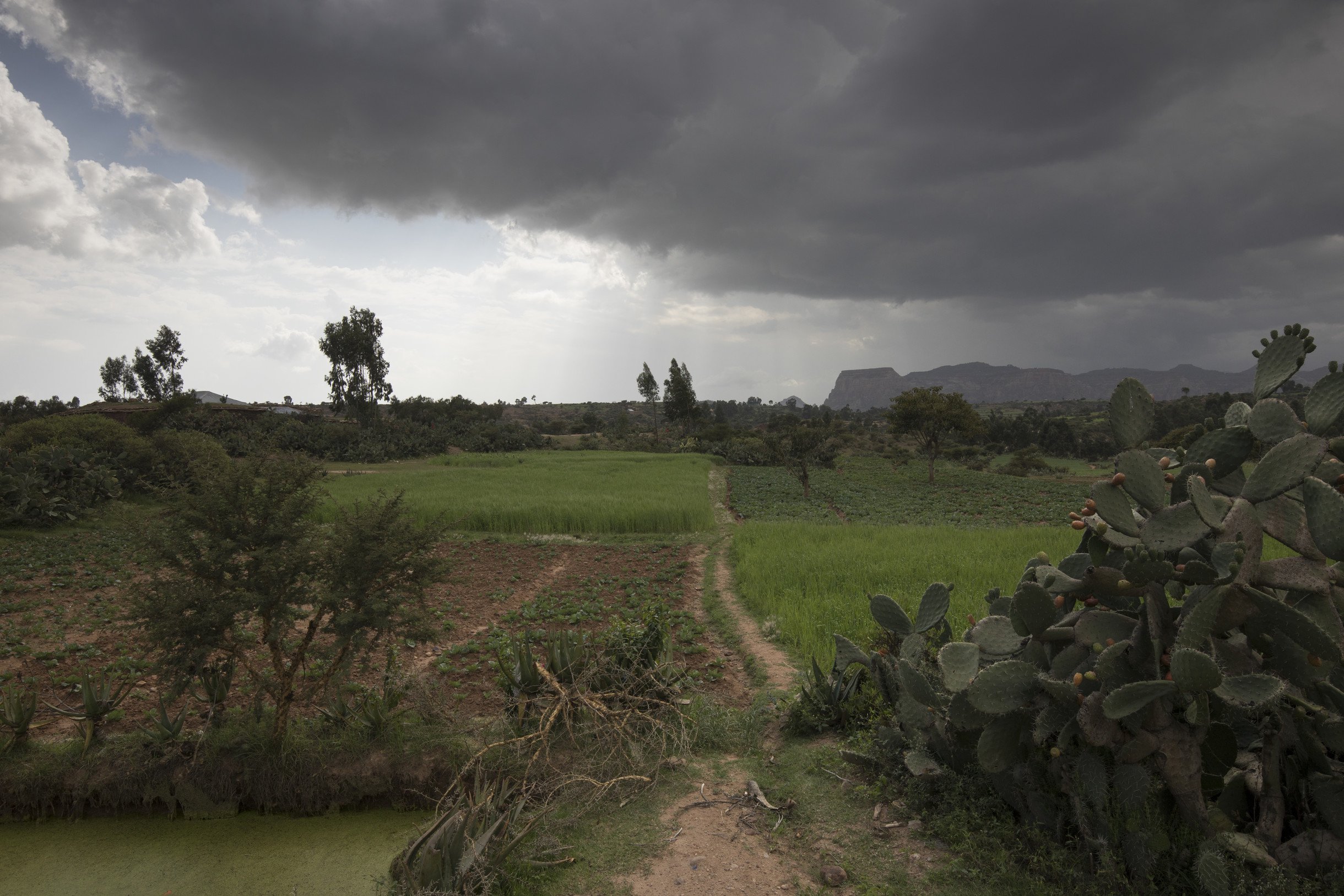In Ethiopia, an uncertain climate discourages people from growing food, but access to training and financial resources helps farmers become self-sufficient.
There were a lot of reasons Letebrhan Kiros didn’t grow much of her own food. Unpredictable rainfall was one problem, the other was lack of money to invest in seeds, fertilizer, and equipment. And even if she could grow a surplus, there was no guarantee anyone would buy it. “We did not know how to access markets,” she says. “We used to just wait for someone with money to come.”
Despite owning enough land, she simply had no confidence she could make any money farming. And they had few alternatives. “My husband used to just work as a laborer for money, but it was not enough for the family.”
Others in her village, a place called Dedebit in the mountainous highlands of the Tigray region, shared Kiros’ predicament, which is why they decided to get involved in a project started in 2009 by the Relief Society of Tigray, Oxfam, the Nyala insurance company, and Swiss Re. It was designed to help farmers reduce the uncertainty of farming, make them more resilient to the negative effects of climate change, build up their savings, and get the capital they need to make farming work. After a successful initial pilot phase, the World Food Programme got involved in 2012, and since then the R4 Initiative—as it became known—expanded to five other countries in Africa and involves 87,000 farmers.

First, the R4 Initiative helped farmers in Dedebit get some insurance for their crops. They paid for it by cash, or with labor on projects designed to reduce their vulnerability to drought and floods, like planting trees, building walls to control erosion in low-lying areas, and other ways of improving soil quality and reducing water run-off.
They also formed village saving associations to build up their savings for times when they need extra money, and get loans to finance their farming. Kiros got loans to plant wheat, and a patch of vegetables like cabbage and onions irrigated with a reservoir and pump. To help diversify her farming, she also borrowed money to buy livestock, and now owns a cow and a calf, and seven sheep.
Confidence builders
The combination of insurance, affordable loans, a little money in a savings account, and training helped give farmers like Kiros more confidence, says Mehbrit Tsegay, one of the leaders of the village savings association in Dedebit. “Farmers want to use new technology and techniques, but they need insurance to be more confident and invest in new things,” she says. “And there are a lot of ways to build confidence through training, loans, and insurance.” Knowing that a modest insurance payment in the event of drought will help you pay back loans for seeds and fertilizer takes away some of the worry. Tsegay says training in growing a variety of grains, vegetables, and raising livestock gives farmers more diverse sources of income.

“I got training from the project on agronomy, improved seeds, land management, and I changed part of my wheat field to vegetable production,” Kiros says. Inside her home, a concrete building with a metal roof, Kiros lists improvements in the standard of living her family is now enjoying: They used to sleep on the floor, now they have a bed. She pulls a mobile phone out of her pocket, she says it “helps me get market information, which helps me sell our vegetables. Before I never had any information.”
She and her husband have two grown children living and working in nearby towns, but the remaining four kids are all in school now. Before, she says, “We did not have money for school. Our children had to write all their exercises in one notebook, now we can get them more than one notebook. We can get everything our kids need for school.” Instead of working as laborers on other farms, she says, “Now we employ two or three people, so we are helping others in the community.” She says the family diet has improved with their ability to grow more food. “We can eat whatever we want.”

After a decade of supporting the R4 Initiative in Ethiopia, Oxfam is now in discussions about handing over responsibility for running the day-to-day operations to our partners. More than 26,000 farmers are now getting insurance through R4 in Tigray and Amhara regions; many of them also are saving and borrowing money and taking advantage of training opportunities. In Amhara the work is implemented by the Organization for Rehabilitation and Development.
Many of the families in Dedebit, like Kiros, have water reservoirs or actual tanks fed by a rooftop water harvesting system that provide a reliable source of water even if rainfall patterns remain uncertain. The combination of activities and equipment makes a difference, according to Mehbrit Tsegay.
“We are full of confidence,” she says. “Now I use new technology and get inputs, and I am free from any doubt about rainfall.”
